X
wikiHow is a “wiki,” similar to Wikipedia, which means that many of our articles are co-written by multiple authors. To create this article, 15 people, some anonymous, worked to edit and improve it over time.
This article has been viewed 101,760 times.
Learn more...
If you find yourself in need of a pair of crutches when none is available, whether for role-playing, or for a minor leg or foot injury, you can build your own with some simple woodworking tools and scrap lumber.
Steps
-
1Choose some straight-grained sound lumber suitable for the project. Oak, poplar, ash, or hickory are good, strong, bendable hardwoods, but even a softwood like white pine used in the illustrations will do in a pinch.
-
2Rip the wood to yield two 1 1⁄4 inch (3.2 cm) by 1 1⁄2 inch (3.8 cm) boards about 66 inches (167.6 cm) long. Mark these 12 inches (30.5 cm) from one end and rip them down their centers from the end to the mark so the two limbs can be separated.Advertisement
-
3Drill a 3⁄8 inch (1.0 cm) hole through the center 2 inches (5.1 cm) below the mark at the end of the rip cut in the previous step. Insert a 3⁄8 inch (1.0 cm) hex bolt through this hole with a flat washer on the head of the bolt, place another washer on the threaded end, and then install the hex nut, tightening it snugly.
-
4Cut a wedge 3⁄4 inch (1.9 cm) wide to a point, 3 inches (7.6 cm) long, and drive it between the two limbs to spread them out. The sides should each bow out symmetrically and form a "Y" shape.
-
5Cut a 1X1 inch block of your wood 4 inches (10.2 cm) long with a 15 degree bevel on each end for each crutch grip, then bore a 3⁄8 inch (1.0 cm) hole through the center, lengthwise. Sand or shape these blocks round so they are comfortable to hold.
-
6Mark a center where the grip should fit through the limbs by placing the end of the crutch on the ground and dropping your hand to a comfortable height between the limbs. For an adjustable grip, a series of holes can be drilled so the grip can be raised or lowered for persons who are different heights. For a crutch being used by one person, the single mark you have made is all that needs to be drilled.
-
7Push a 3/8 all-thread rod through one limb, the grip, and then the other limb, place flat washers and then nuts on each end of these bolts. Tighten the nuts securely, and cut off any of the all-thread rod that extends beyond the nuts.
-
8Hold the crutches by the grips in the position you would use the crutches in, and mark the height the limbs need to be trimmed at. Cut the limbs off at these marks.
-
9Cut two more blocks of wood 1 1/2 inches (5.1 cm) square and 7 inches (17.8 cm) long, then notch each end 1⁄2 inch (1.3 cm) back from the ends and 1⁄2 inch (1.3 cm) deep to create steps for the limbs to fit into. Glue and nail the ends of the limbs in these notches to form the tops of the crutches.
-
10Sand or smooth any rough surfaces of the crutches for a more comfortable and attractive crutches.
Advertisement
Community Q&A
-
QuestionWill you get splinters?
 Community AnswerIf they are made out of wood, it is possible to get splinters, especially if they are not sanded or sealed.
Community AnswerIf they are made out of wood, it is possible to get splinters, especially if they are not sanded or sealed. -
QuestionCan crutches be made by hand out of metal?
 Community AnswerYes. Pretty much anything can be made out of any material.
Community AnswerYes. Pretty much anything can be made out of any material. -
QuestionHow can I get some already-made crutches?
 Community AnswerYou can usually go to a hospital and get a pair. If not, go to your local pharmacy and ask for a pair. Some drugstores may also sell crutches.
Community AnswerYou can usually go to a hospital and get a pair. If not, go to your local pharmacy and ask for a pair. Some drugstores may also sell crutches.
Advertisement
Warnings
- Use appropriate safety equipment when using power tools.⧼thumbs_response⧽
- Please use "Rubber Feet" at indoor on the floor which tends to be slippery.⧼thumbs_response⧽
Advertisement
Things You'll Need
- 6 feet (1.8 m) of 2X4 lumber, straight grained and free of large knots.
- Circular saw
- Drill with 3/8" bit
- Sander or sandpaper
- Wood glue
- Nails
- Two 2 inch (5.1 cm) long 3/8 hex bolts
- Two 6 inch (15.2 cm) long 3/8 all-thread rod
- Six 3/8 hex nuts
- Eight 3/8 flat washers
About This Article
Advertisement
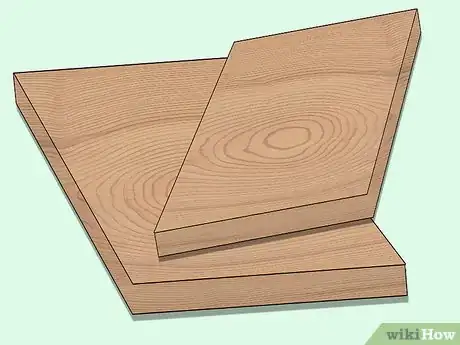
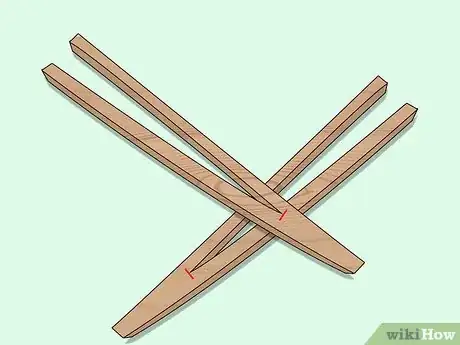
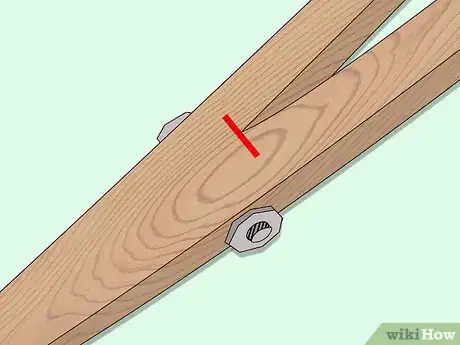
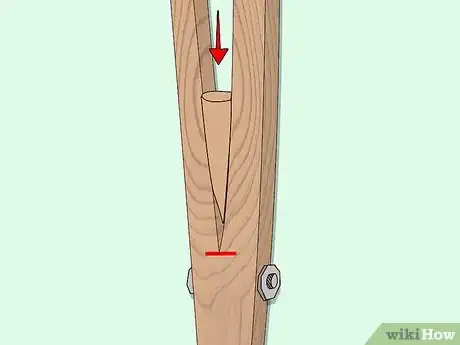
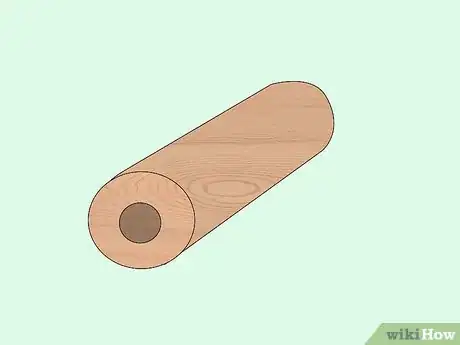
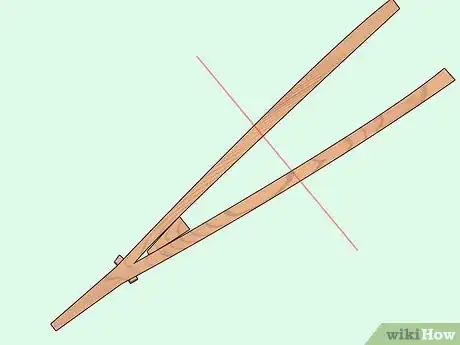
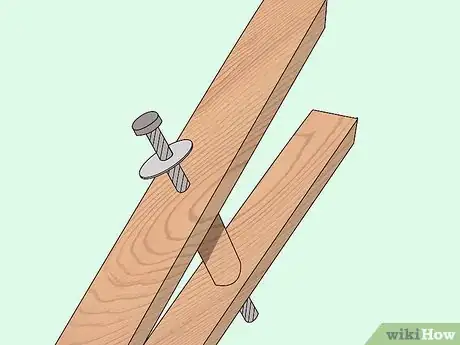
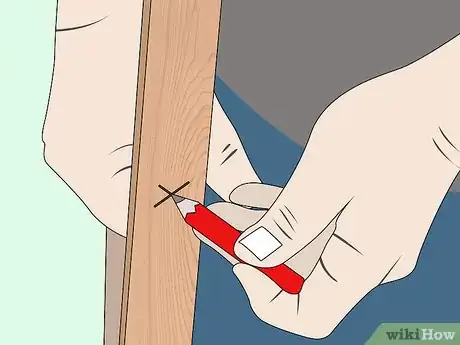
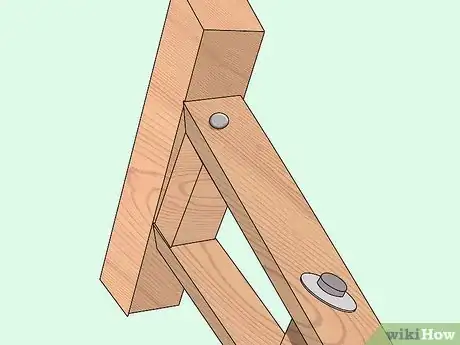

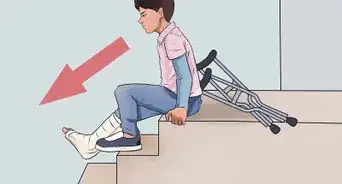
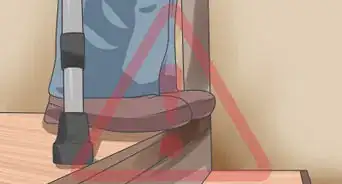
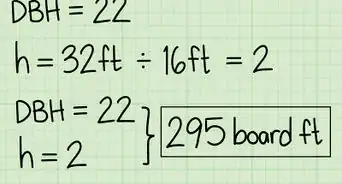

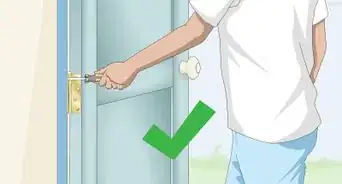
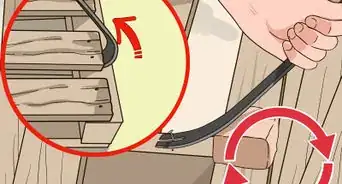
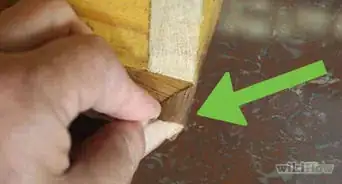
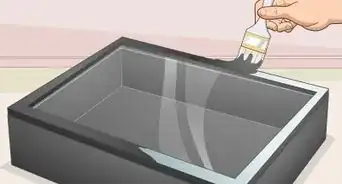









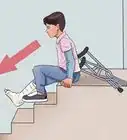
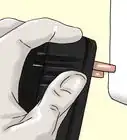
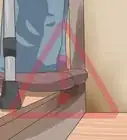
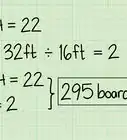



































Medical Disclaimer
The content of this article is not intended to be a substitute for professional medical advice, examination, diagnosis, or treatment. You should always contact your doctor or other qualified healthcare professional before starting, changing, or stopping any kind of health treatment.
Read More...